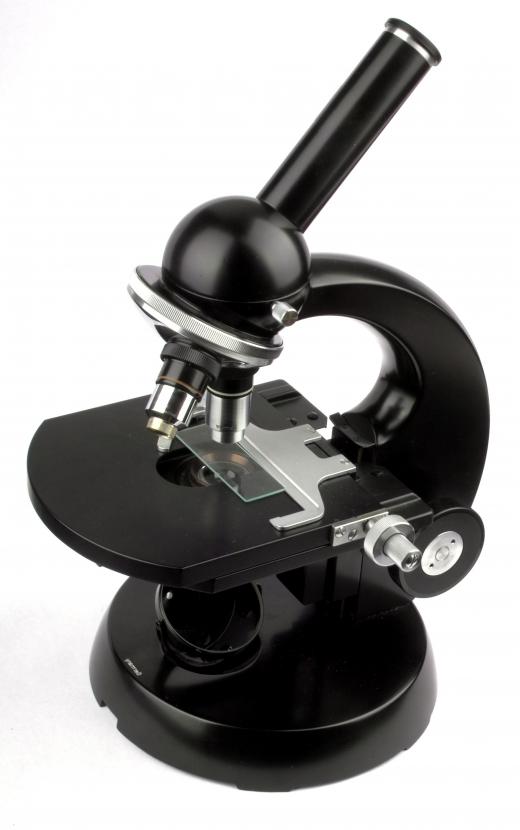What Is an Eyepiece?
An eyepiece is one of the parts of microscopes, binoculars and optical telescopes. These pieces are also often referred to as ocular lenses. When people look into these devices, the eye is placed against the eyepiece. This lens provides additional magnification on top of that provided by other lenses within the microscope, binoculars or telescope.
Eyepieces come in different sizes and lengths. The size of an eyepiece refers to its diameter, or the distance across it. The length refers to its focal length, which is the distance from the lens within the eyepiece to where the rays of light converge and come into focus. The diameter and focal length of eyepieces varies based on the intended use within the microscope or telescope.

The focal length of eyepieces determines how strong they are. If an eyepiece has a short focal length, it can focus rays of light within a shorter distance from the lens. This means that the eyepiece contains a stronger lens, or one that is more powerful. As focal length increases, the distance required to focus an image increases, and the eyepiece is said to be less powerful.

Within these types of optical devices, an object is magnified twice. First it is magnified by the main system of optical lenses, called the objective lenses, and then it is magnified by the eyepiece. The position of an eyepiece is very important, as it is near the focal point of the objective lenses, or where the rays of light are in focus from the initial lenses. The image that is produced is then further magnified as it travels through the eyepiece.
There are several different lenses that work together to provide the right magnification or focal length. They are found in one part of the eyepiece, which is then attached to a barrel. The barrel may be slightly differently shaped so that it fits into the microscope or telescope being used. Different eyepieces can be interchanged within the same microscope or telescope. In binoculars, eyepieces are fixed in place so they cannot be removed from the device, although they can be focused separately from the objective lenses.
The main reason that eyepieces are interchangeable in microscopes and telescopes is that it allows the user to adjust the magnification of the device. Both microscopes and telescopes have standard barrel sizes, with those found in microscope eyepieces being slightly smaller than those found within telescopes. Generally, microscope eyepieces are 0.9 inches (23 mm) or 1.18 inches (30 mm) in diameter, while those in telescopes may be 0.96 inches (24.5 mm), 1.25 inches (31.75 mm) or 2 inches (50.8 mm) in diameter.
AS FEATURED ON:
AS FEATURED ON:












Discuss this Article
Post your comments